Janicza Bravo Makes Uncompromising Films Like “Lemon” Because She Can, Dammit
Lemon is not an easy watch. Janicza Bravo wanted it that way, though.
“I don’t know that people offhand think they want to feel bad for this length of time,” the filmmaker says of her feature debut. “I think when you go to see comedy you want to feel okay. And this is a comedy that doesn’t necessarily make you feel okay.”
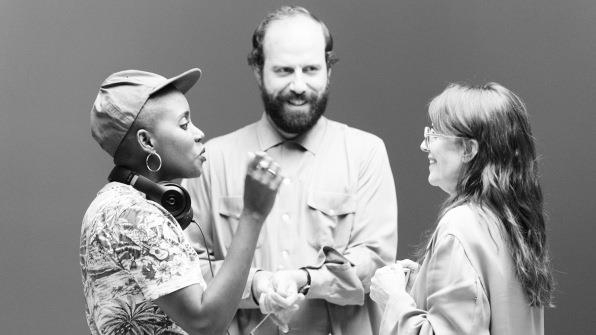
Lemon, indeed, may not make viewers feel okay, but it will make them feel something.
Bravo’s film is, at times, hostile and abrasive. The director’s real-life husband, Brett Gelman, who also co-wrote the screenplay with her, stars as Isaac, a ne’er-do-well acting teacher whose awkwardness borders on sociopathy–and sometimes crosses right over. Lemon has a very specific rhythm, with extended takes, scenes that cut off in mid-sentence, and one unexpected, unforgettable singalong. Although not very much happens plot-wise, by the end, viewers will have gotten to know Isaac all too well. The film may take place in an absurdist, heightened world–“hyperlife,” Bravo calls it–but the feelings it contains, and evokes, are deeply recognizable, albeit blown up to extraordinary breadth–hence the discomfort.
If the film is, at times, difficult to watch, it was not easy to make either. Lemon may be exactly the film Bravo wanted, but in order to make it that way, she first had to earn it.
Bravo spent the beginning of her career working as a theater director and costume designer, worried that nothing she made would ever rival her senior thesis: an epic 3.5-hour rendition of the play Dangerous Liaisons.
“I think the thing I liked about it was I felt totally unafraid,” she says of that project. “I had room to try every idea that I had, and in the end, there are things I would change about it. But it’s exactly how I felt at that moment, and it was incredibly raw.”
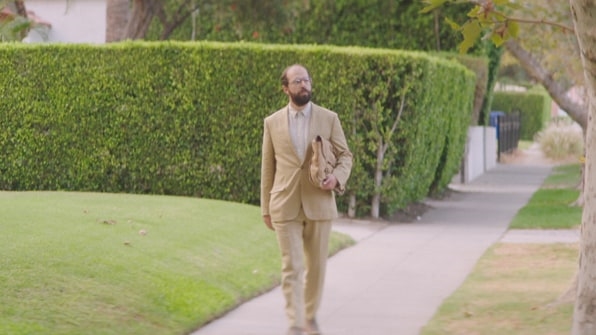
As she made her way through the world, Bravo began to run in circles with more people involved in film, and became interested in entering that space. She thought it would be fun to make movies that felt like plays: confrontational, immediate, dangerous. As much as she was interested in switching mediums, however, she was intimidated by the gatekeepers.
“I knew a lot of filmmakers and they were all assholes,” she says. “When I talked about working in film, I didn’t feel like I was being invited.”
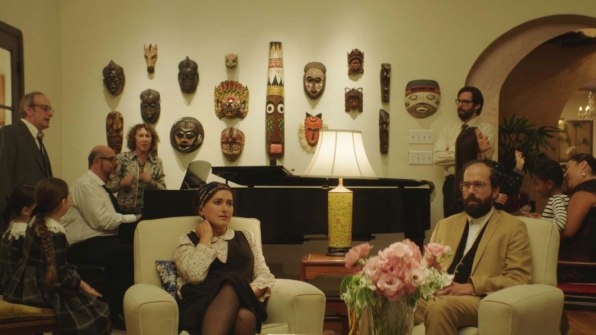
Despite the discouragement, she decided to make her first short film, Eat, in 2011. It would be an exercise to see whether she could execute her vision, and what it would feel like if she did. Eat establishes a sensibility, rather than a fully formed aesthetic, but it’s more than a hint of Bravo’s promise. Watching it now, you can see the throughline to Lemon–several elements already in place, others gestating. In a sign of things to come, Gelman plays a reclusive schlub, devoid of social graces.
Much to Bravo’s surprise, Eat was accepted into the Sundance Film Festival. When it screened there, the reception was so warm that Bravo was instantly disabused of the notion that Dangerous Liaisons would be her creative peak.
“The thing I got at Sundance was the hit–what I’ve heard people describe with their first hit of heroin or crack,” she says. “It felt so good that I wanted to repeat that.”
The budding filmmaker was suddenly addicted. She also had a modest amount of clout. People were willing to give her money to make short films, essentially bankrolling her through trial-by-fire film school. The more shorts she made, the more comfortable she became and the more she understands cinematic language. Several of these films starred Gelman, who seems to specialize in playing people who are tough to be around.
Considering how much of Bravo’s work her husband appears in, it occurred to me that he may, in fact, be her muse.
“Oh, he definitely is my muse,” she confirms. “I didn’t know that he was. It wasn’t a conscious decision, it just kind of happened. I live with Brett and I watch him a lot, and I’m sort of very excited by how he moves and how he processes and how he uses rage. His feelings are very loud for him and he’s very emotional and that is very much a part of the work that we make together.”
While she was inventing worlds for Gelman to inhabit, though, the pair was also chipping away at the script that would become Lemon. It ultimately took Bravo eight shorts to get the funding to make the film the way she wanted, but she didn’t need all eight to know she could make it.
“I think I could have gotten funding for a feature after my second short,” she says, referring to the Sundance Grand Jury prize-winning Gregory Go Boom, which stars Michael Cera. “If I made a longer version of that piece, or something that was a little more center, I could’ve realized it a bit sooner. But my road, my rejection, my validation–that was the perfect amount of time to lead to making Lemon.”
Some people who read drafts of the Lemon screenplay along the way had major thoughts about how to make it a little “happier.” Others patiently explained that as a black woman, perhaps she shouldn’t be telling the story of a white guy. Maybe if she wrote something about a black woman, she might then have something.
“I called BS on those people,” Bravo says, “because I don’t think it would’ve made it easier to get made–I just think they could have wrapped their heads around it a little better.”
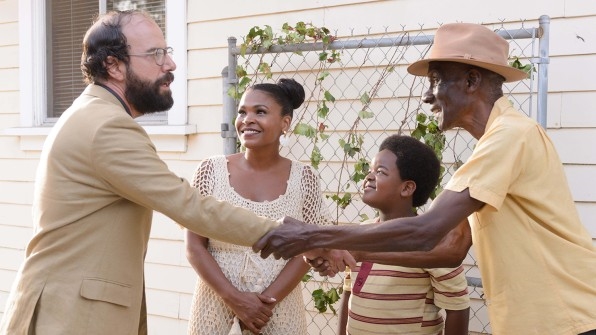
It’s hard to explain what Lemon is about, per se, since that’s kind of beside the point. (If Bravo had to pin down a specific focus, it would be: mediocrity.) Her work in general, though, is a running exploration of whiteness, privilege, and people who are neither comfortable in their own skin nor able to process the discomfort. Although the filmmaker considers herself an extrovert, she still feels a kinship with these kinds of characters.
“I do feel like and I have been treated like I’m less-than because I’m limited,” she says. “And those limitations are because I’m a woman, because I’m of color, because whatever. So while I’m not a white male, I’m working from a place of feeling this feeling of not having a voice–this feeling of invisibility, like I’m disappearing.”
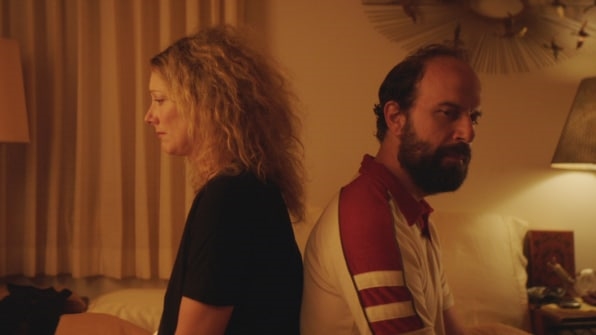
Perhaps seeing the struggle Bravo went through in trying to make her film is part of what led Gelman last fall to sever ties with Adult Swim, who frequently put out his specials, over their unrepentant stance about having no projects from female creators. It was a decision he made, however, without any urging on his wife’s behalf.
“I actually thought he shouldn’t have done anything,” Bravo says. “I’m so proud of him that he did. Standing up against a network wouldn’t bode as well for me, because I don’t exist as a white person or a man. So when he asked me about it, I told him that within my own experience I would never do that. I would be too scared. I’m glad he didn’t listen to me, though, because he lives in a different body and his body is something else. And the way people treat him coming into a room is different than the way people treat me coming into a room.”
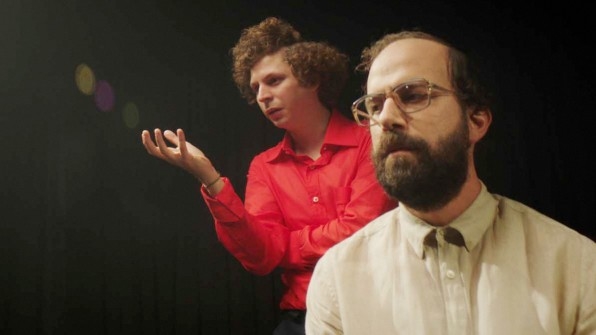
At this point, Bravo has kicked enough doors for herself that she clearly needs no invite to enter and pull up a seat at the table. Last fall, she directed the popular “Juneteenth” episode of Donald Glover’s Atlanta, which has led to more TV work. Earlier this year, Lemon played at Sundance and inspired a lot of hype before Magnolia Pictures acquired it. None of these outcomes, however, have made her feel less like an outsider in the film world.
“There has been more opportunity for me recently, but I can’t speak to the majority,” Bravo says. “I’m still pitching myself to rooms that don’t look like me, and I know that when I’m at film festivals, if there’s another person who looks like me, there’s just one. I think that it’s in the zeitgeist and the conversation feels like it’s coming, but only when I’m on a panel and there’s two other women of color or even just like three other women in total, then I’m gonna feel like it’s different.”
Fast Company , Read Full Story
(53)













